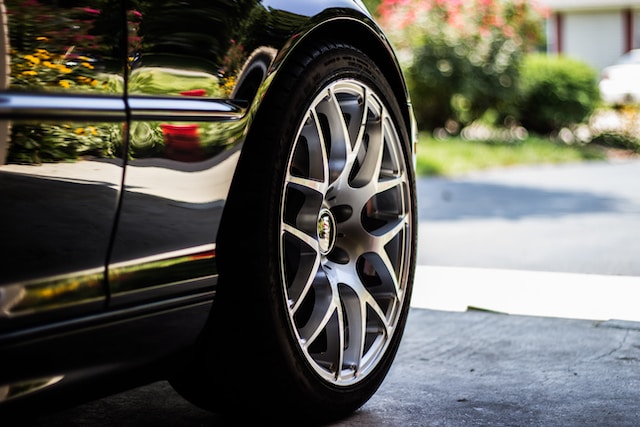Your car is like your best friend: reliable, efficient, and there when you need it the most. From long road trips to running errands around town, your car always has your back. But like any relationship, taking good care of it is necessary for maintaining a long-lasting partnership of convenience! Car maintenance can be overwhelming for beginners; luckily with our guide here at Car Maintenance 101, we'll teach you how negating simple maintenance tasks could save you major headaches (and money!) down the road. Let's dive into the basics today so that you can keep your vehicle running smoothly — now and well into the future.
 |
| Car Maintenance 101: A Beginner's Guide to Keeping Your Vehicle Running Smoothly [image: unsplash] |
Understand the basics of car maintenance
Understanding the basics of car maintenance can save you time and money in the long run. One crucial task is changing your car’s oil regularly, which helps to keep the engine lubricated and clean. Rotating your tires can improve their lifespan and help to prevent uneven wear. Replacing your brake pads when they start to wear down can ensure your brakes are working properly and keep you safe on the roads. Educating yourself about these tasks and other basics of car maintenance can go a long way in ensuring your vehicle stays in top condition for years to come.
Check your oil and fluids regularly
Regularly checking and maintaining your car's oil and fluid levels is essential for keeping your vehicle running smoothly. Low levels can cause damage to your car's engine and other components, resulting in costly repairs. It's recommended to check your oil every month and your other fluids, such as coolant and transmission fluid, every six months. Not only will this help prevent any major issues, but it can also improve your car's overall performance and fuel efficiency. Additionally, if you're considering upgrading your vehicle, whether to upgrade to a newer model or sell your used Lamborghini, for instance, regular maintenance can help keep your car running smoothly and maximize its resale potential. Don't wait until it's too late to ensure your car's fluids are at the correct levels. Make it a part of your routine maintenance and drive with peace of mind.
 |
| [image: unsplash] |
It's important to regularly inspect our tires for any signs of wear and tear, as even the slightest damage can have a significant impact on your vehicle's performance. Look out for any cracks, bulges, or cuts on the tire walls, and check the tread depth to ensure it is sufficient for optimal traction. Visit TireGrades for useful tips and advice on when to replace your tires, so you can drive with greater confidence. If you notice any damage or excessive wear, it's best to replace your tires as soon as possible to minimize the risk of an accident. Taking proactive measures to maintain your tires can go a long way in ensuring a smooth, safe, and enjoyable driving experience.
Take a look at your brakes
Taking the time to check your brakes for even wear on the pads or discs can be crucial to the safety of both you and those around you on the road. Uneven wear can lead to reduced braking performance, increased stopping distances, and in extreme cases, brake failure. It's easy to overlook the condition of your brakes when everything seems to be functioning normally, but regular checks can help prevent accidents and save lives. Don't wait until it's too late- take a few minutes to inspect your brakes and ensure they are in top condition.
Make sure you replace your wiper blades
Over time, wiper blades become worn, cracked, and damaged, which can lead to streaks and smearing on your windshield, obscuring your view of the road. To avoid this hazard, it's important to check and replace your wiper blades regularly. Not only will this improve your visibility in rain, sleet, and snow, but it will also help extend the life of your windshield by preventing scratches and damage caused by old blades. Stay safe on the road and make sure to replace your wiper blades when necessary!
Regularly clean out any debris
Over time, dirt, dust, and other particles can accumulate and block these key components, reducing their efficiency and causing your vehicle to work harder than necessary. Not only can this decrease your gas mileage, but it can also lead to more frequent breakdowns. By regularly cleaning out debris from these parts, you can help ensure that your car remains in top condition and lasts for many miles to come. So, don't neglect this critical aspect of vehicle maintenance, and watch as your car continues to purr like a kitten!
Regular maintenance on your vehicle can help you save money by preventing costly repairs in the future. Remember to check and replace your engine oil, tire treads, brake pads, and wiper blades for optimal performance. Also, make sure you check the various fluids in your car system and routinely clean out any clogged filters or debris buildup. Following these simple steps will ensure your car runs optimally and make sure you're safe while driving!

No comments:
Post a Comment
Please Leave a Comment to show some Love ~ Thanks